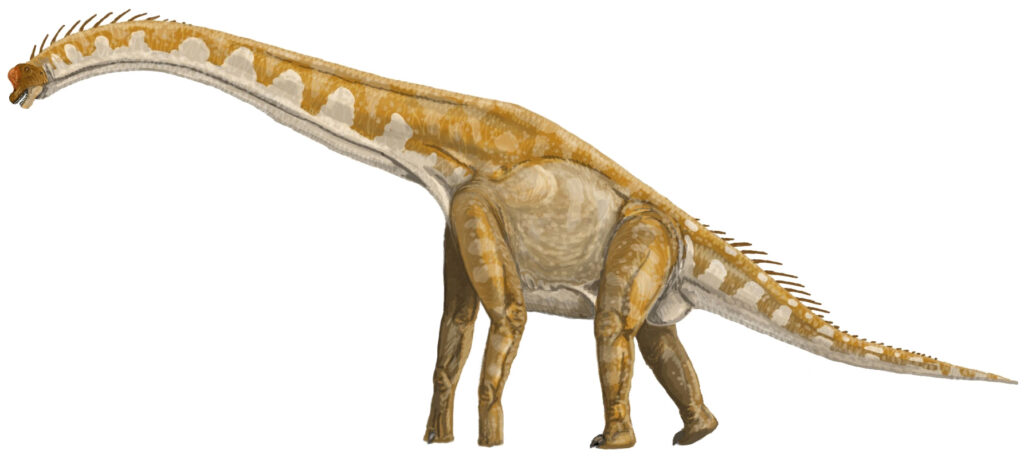The Giant of the Jurassic
Giraffatitan was an enormous dinosaur that lived approximately 150 million years ago during the Late Jurassic period.

| Meaning | Giraffe titan [Giraffa-titan] |
| Pronunciation | jir-AFF-uh-TY-tan |
| When: | Late Jurassic (about 154–150 million years ago) |
| Where: | Africa (present-day Tanzania, Zimbabwe) |
| What: | Sauropod (quadrupedal herbivorous) |
| Weight: | Estimated around 20–40 metric tons |
| Length: | Approximately 21–24 meters (69–79 feet) |
| Diet: | Herbivorous (fed on high vegetation like conifers and ferns) |
| Discovered: | First described by Werner Janensch in 1914 |
It was a sauropod, belonging to the same group as the famous Brachiosaurus. Giraffatitan is known for its colossal size, reaching lengths of about 70 feet and towering over 40 feet tall at its highest point.
This herbivorous giant had a long neck that it used to reach high branches of trees to feed on leaves. Its long tail helped with balance, and despite its massive size, Giraffatitan walked on four sturdy legs. Its neck and tail were counterbalanced by its long, thick legs and robust body.
Giraffatitan fossils have been found in what is now Tanzania, Africa. Originally named as a species of Brachiosaurus, it was later reclassified into its own genus, Giraffatitan, due to slight anatomical differences. Its name means “giant giraffe lizard,” referencing its size and long neck resembling that of a modern giraffe.
